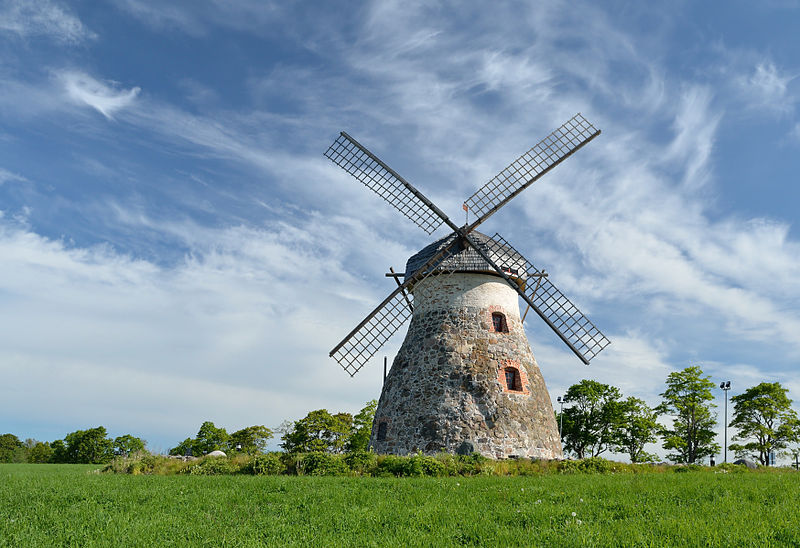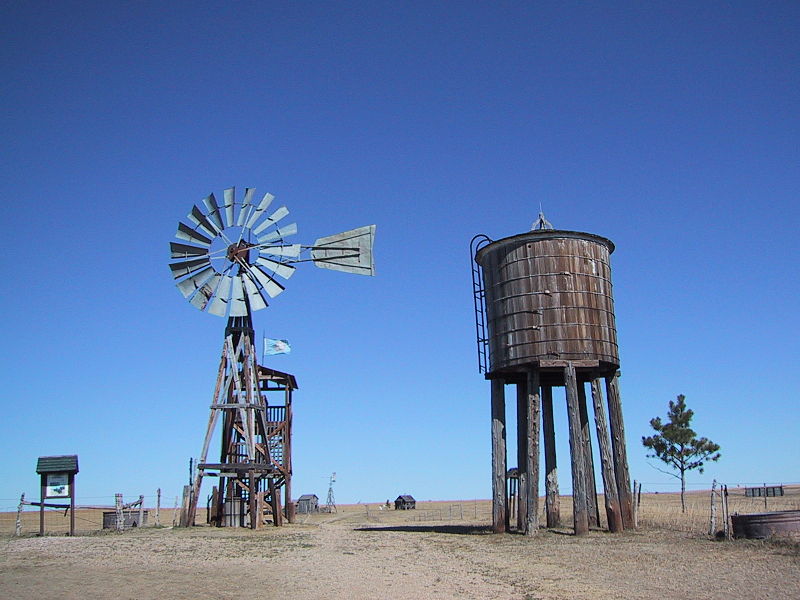An Energy History
Energy has been an organizing principle in human evolution and our societies. This chapter lays out the choices before us and shows the consequences of our energy decisions in the past.
At least two pivotal moments in human history can be viewed as advances in our use of energy. Agriculture was the organized conversion of solar energy to chemical food energy in a way that reduced the calories humans had to expend to harvest that food. With reduced energy going into food production, societies could advance in new ways. The industrial revolution was based on the conversion of coal, ancient fossilized plants, to mechanical energy. The energy output of a human being could be replaced by pile of black rocks. Machines could produce goods that required human energy and an explosion of both human wealth and threats to health began.
Ancient Renewable Energy
Water power
- Water wheels
- converts kinetic and potential energy in water to rotational motion
- estimated 500,000 waterwheels in Europe
Water Wheel

Wind power
- Windmills
- converts kinetic energy in the wind to rotational motion
- Dates to Ancient Greece
- 12th century in Europe
- estimated 200,000 windmills at peak in Europe
- estimated 600,000 windmill waterpumps at peak in 1930 in United States
- Sailing
- Allowed long distance travel
Ancient Windmill

American Pumping Windmill

Human Food and Energy
Food Gathering Techniques
- Foraging
- Hunting
- Agriculture
- Livestock
Fire
Stored chemical energy in wood to heat
Allowed for tool making
Allowed for cooking
Richard Wrangham, primatologist, argues that cooking saves energy in digestion
Human Thermoregulation
- Our superior ability to remove heat energy from our bodies allows us to outrun prey animals
Livestock
- Oxen
- Horses
- Allowed humans to cultivate more land, but required more land for food
Hunting Machines
- Bow and arrow
- energy is stored in bow and released quickly
- Spear and Lever
- Lever allows hunter to impart more kinetic energy to the spear than with the arm alone
- Guns
- Chemical energy converted to kinetic energy in bullet
Consequences of Industrialization
- Increased economic activity
- Urban pollution
- Global Warming
- Widespread use of these fuels causes an increase in fossil carbon in the atmosphere
- Arhennius in 1896 calculated how changes in the levels of CO2 could alter surface temperature
Energy in the Fossil Fuel Era
- The modern era is marked by the enormous productivity gains provided by fossil fuel energy
- We can purchase the equivalent of one person’s labor for a day for about 10 cents
Steam Engine
- Invented by James Watt in approximately 1770
- Converts of chemical energy to heat to motion
- Created shift in manufacturing technology
Internal Combustion Engine
- Inventions in the 1800s lead to first automobile patent by Karl Benz in 1886
Electrification
- Pearl Street Station
- Steam-powered, coal-fired electricity generator
- Fossil fuel is still widely used for electricity generation
Future Energy Technologies?
- What technical and financial innovations will allow for more low carbon energy solutions?